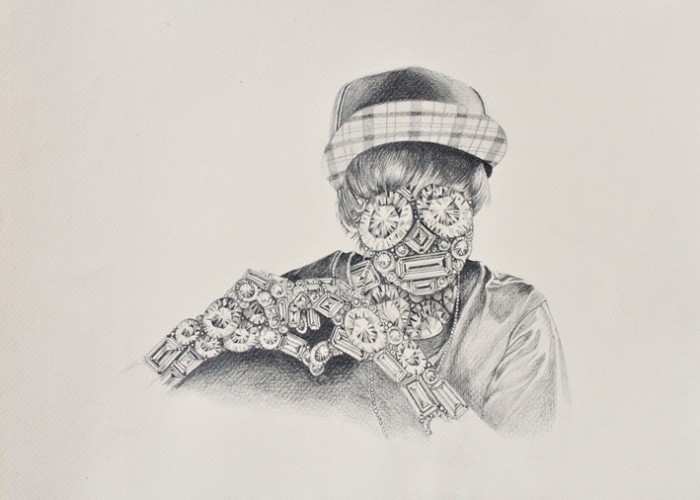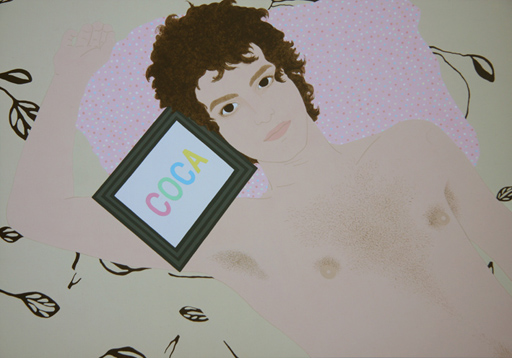Knocking on Keret’s Door
Masha Kisel
In Etgar Keret’s Suddenly, a Knock on the Door (2010), thirty-five humorously unexpected plots develop with the predictable timing of knock-knock jokes. The book begins with the titular short story about a writer held hostage by an armed intruder who knocks on his door and demands a story. The “suddenness” promised in the title loses its quiddity by the third paragraph. The same sequence of events repeats itself when the narrative opening, “Suddenly, there is a knock on the door,” summons a Moroccan pollster with a gun, then a pizza delivery man with a cleaver. Keret does not shy away from using the social and political tensions between Jews and Arabs, as well as between Israelis and Russian newcomers in his native Israel throughout this collection. But, as the Keret-like protagonist explains in the opening story, Israel’s peculiar socio-political conflicts merely provide the backdrop to explore the “human condition.” The “human condition,” in Keret’s cosmology, is the state of being bound to others: to human and non-human others, to real and fictional others, and to past and even future versions of oneself. Although the narrative universes in each of these stories operate according to their own fantastical laws of cause and effect, their space-time continuums are similar karmic knots.
In the story “Lieland,” the creatively deceitful protagonist, Robbie, discovers a purgatorial place, or rather a non-place, where all of his lies have come to life. He encounters a run-over dog he had invented to explain why he was late for work, which “half-crawled forward, its two forelegs struggling to pull its paralyzed pelvis along” and realizes that suffering can be caused not only by actions, but by careless thoughts and words. In Keret’s stories even divine beings cannot escape ethical responsibility for their creations. In “Pick a Color,” a deity answers a Job-like doubter: “‘What do you think,’ the silvery god asked the yellow priest in frustration, ‘that I created all of you like this because it’s what I wanted? Because I am some kind of pervert or sadist who enjoys all this suffering? I created you like this because this is what I know. It’s the best I can do.’” Keret offers a twist on the Biblical version of the story; the silvery god issues an apology to the victims of his imagination.
Keret is at his best when he writes about parent-child relationships to show the real value of extending ethical responsibility into the ideal realm. In such stories as “Teamwork” and “Polite Little Boy,” Keret shows how vulnerable children are to the lack of care expressed by words and thoughts. In “Teamwork,” a little boy’s grandmother “babysits” him by leaving him locked in a room and ignores his cries. The nameless Polite Little Boy is dubbed polite because he pretends to not notice the bitter fighting of his parents. It is in these “realist” short stories that the reader sees the practical relevance of Keret’s playful transformations of the imaginary into the real. Those who most depend on us psychologically will not always come forward to complain about their mistreatment. We may operate under the illusion that our unexpressed malice or our neglect is harmless, unaware of the damage we are causing. Keret’s witty magical realism playfully invites his readers to become better citizens of all of the realms that they may inhabit.
Keret’s dead-pan delivery of existential absurdities has earned him comparisons to Gogol, Kafka and Vonnegut. He boasts numerous admirers amongst his contemporaries: Amos Oz, Salman Rushdie, Jonathan Safran-Foer, Gary Shteyngart, Miranda July and Ira Glass have all sung his praises. Accessible, yet elusively enigmatic, Keret easily crosses over from elite literary circles into popular culture. Suddenly, A Knock on the Door is his fourth collection of short stories, but his oeuvre also includes films and graphic novels. The American-made 2006 film Wristcutters: A Love Story, based on his short story about a romantic relationship forged in the afterlife, has become an indie cult classic. Although Keret writes in Hebrew, the English translations by Miriam Shlesinger, Sondra Silverston, and Nathan Englander, capture the author’s world-weary voice as well as his delight and surprise when new ideas knock at his door.
[ + bar ]
On Translating a Translation
Adam Z. Levy
For all the theories of translation one disavows or keeps tacked above the bed, there remain certain unscientific gut-level questions like: Have I gone too... Read More »
I’ve Lost Everything I Loved (excerpt)
from J’ai perdu tout ce que j’aimais by Sacha Sperling translated by Addie Leak
I had decided that my name would be Sacha Sperling and... Read More »








 sending...
sending...